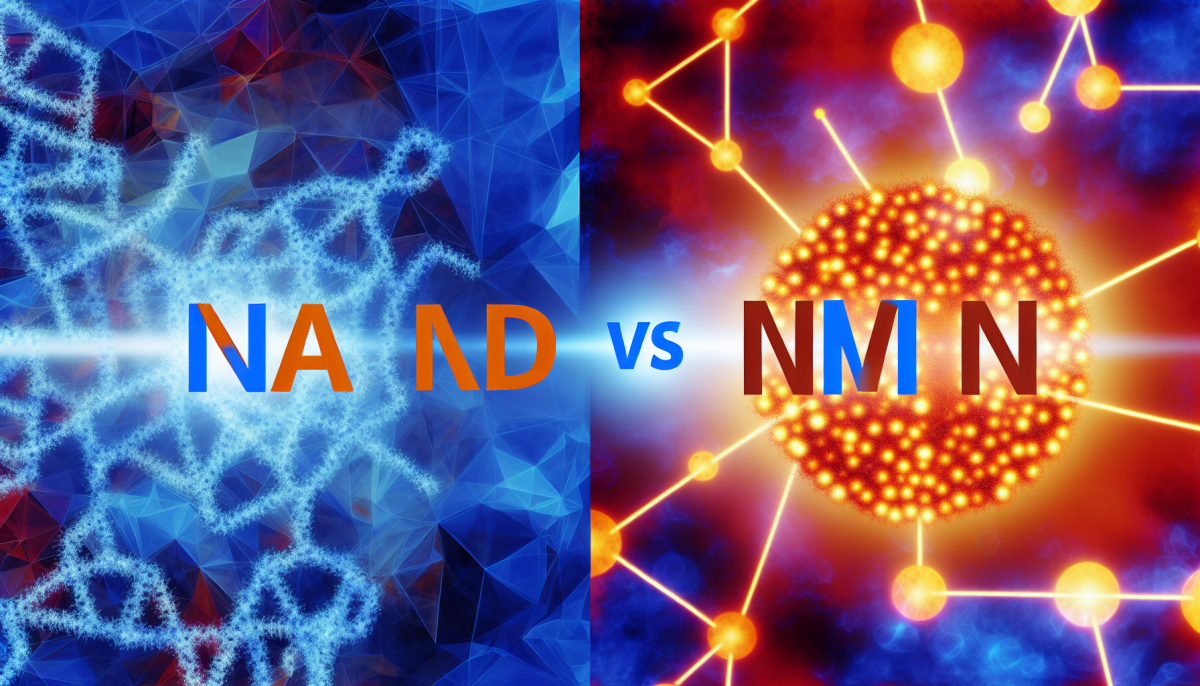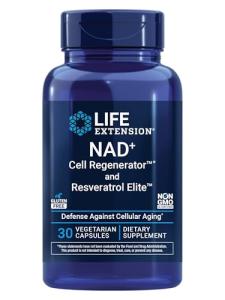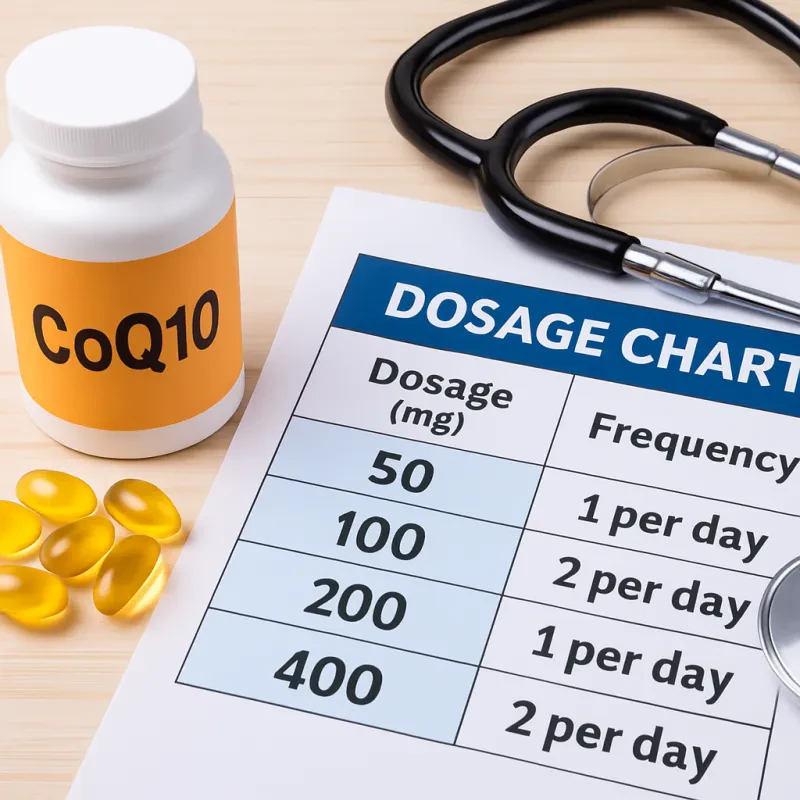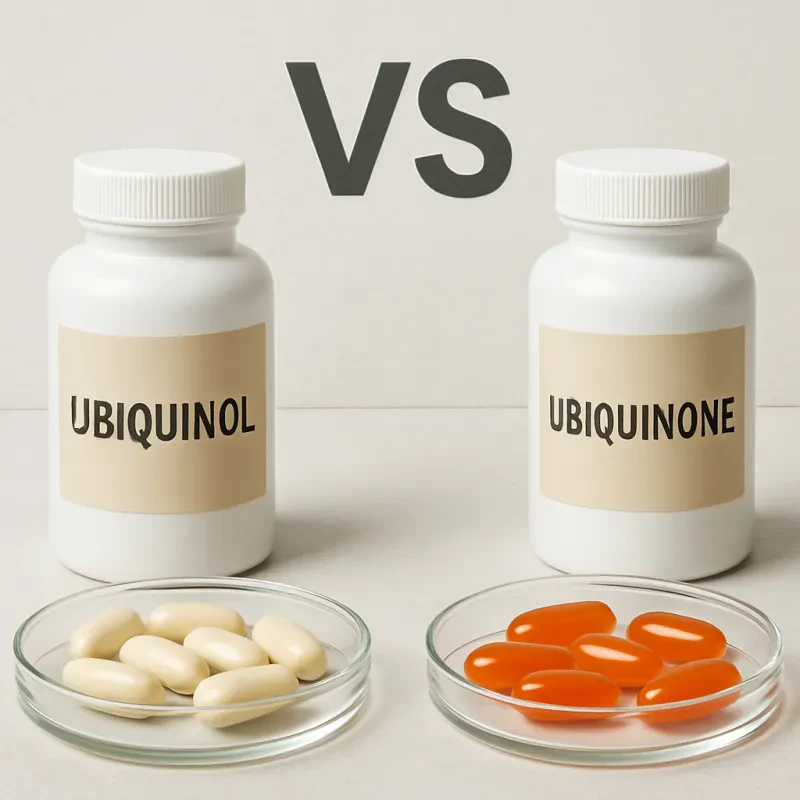Introduction to NAD and NMN
NAD (Nicotinamide Adenine Dinucleotide) and NMN (Nicotinamide Mononucleotide) are two vital molecules found in every cell of our bodies. They play essential roles in energy metabolism and maintaining cellular health. NAD is a coenzyme that powers metabolic reactions and drives cellular processes. On the other hand, NMN is a precursor to NAD, meaning it becomes NAD through a series of chemical transformations. Both are crucial to maintaining our body's physiological functions and have garnered attention for their potential impacts on aging and longevity.
What is NAD?
NAD, or Nicotinamide Adenine Dinucleotide, is a coenzyme found in all living cells. It is a critical component in cellular metabolism as it plays a vital role in transferring energy from the breakdown of food to cellular functions. This coenzyme is essential for many enzymes in the body, contributing to processes such as gene expression, immune function, and DNA repair. Furthermore, NAD has a significant role in aging processes and could have potential therapeutic benefits for metabolic complications.
The role of NAD in the body
NAD, short for Nicotinamide Adenine Dinucleotide, performs a crucial function in the body's cells, facilitating energy transfer from the food we consume to the cellular functions that keep us alive. This coenzyme is involved in redox reactions, driving metabolic processes like glycolysis, the citric acid cycle, and oxidative phosphorylation. It acts as an electron carrier in these reactions, helping convert nutrients into cellular energy. Beyond energy metabolism, NAD also plays a pivotal role in other cellular processes. It is essential for the function of various enzymes, significantly impacting DNA repair, gene expression, and immune response. NAD's presence in these processes underscores its critical role in maintaining cellular health and function.
The benefits of NAD
NAD has numerous benefits owing to its vital role in cellular metabolism and various bodily processes. It helps transfer energy from nutrients to cellular functions, supporting overall cell health and energy levels. NAD also functions as a helper molecule for proteins that regulate other cellular activities. These proteins include those involved in DNA repair, gene expression, and immune response, making NAD crucial for maintaining DNA integrity, regulating gene expression, and promoting a healthy immune system. Additionally, NAD plays a significant role in the aging process. Its levels in the body decrease with age, and supplementing with NAD has been shown to slow the effects of aging and improve overall health. It may also have therapeutic benefits in treating various metabolic complications, including diabetes and fatty liver disease.
What is NMN?
NMN, or Nicotinamide Mononucleotide, is a bioactive nucleotide naturally produced in the body. It serves as a precursor to NAD, meaning it undergoes chemical transformations to become NAD. This molecule is integral to cellular metabolism as it significantly contributes to the production of NAD, a crucial coenzyme involved in numerous cellular processes, including energy metabolism and cellular repair. Like NAD, NMN has also attracted attention due to its potential implications for human aging and longevity.
The role of NMN in the body
NMN, or Nicotinamide Mononucleotide, plays a critical role in our bodies as a precursor to NAD, contributing significantly to cellular metabolism and energy production. It is naturally produced within the body and undergoes chemical transformations to become NAD. This process is vital for maintaining the necessary levels of NAD that support numerous cellular processes. In addition to its role in NAD production, NMN also activates sirtuins, a group of proteins that regulate cellular health. Sirtuins are known to play a crucial role in aging and longevity, and their activation by NMN suggests the molecule's potential to promote healthy aging. Overall, NMN's primary function in the body is to facilitate the production of NAD and support cellular energy metabolism, contributing to overall cellular health and longevity.
The benefits of NMN
As a precursor to NAD, NMN carries substantial benefits for our health and well-being. It plays a critical role in energy metabolism by contributing to the production of NAD, a coenzyme instrumental in cellular metabolism and energy transfer. By boosting NAD levels, NMN can enhance cellular energy and overall vitality. Additionally, NMN aids in activating sirtuins, proteins that regulate cellular health and play a role in aging and longevity. By activating these proteins, NMN may help promote healthier aging. It has also been linked to improved cardiovascular health, brain function, and muscle endurance. Overall, NMN supports cellular health and energy metabolism and may slow down the aging process, making it a vital molecule for our health and longevity.
The main differences between NAD and NMN
The primary differences between NAD (Nicotinamide Adenine Dinucleotide) and NMN (Nicotinamide Mononucleotide) lie in their structure, function, and role in the body.
- Structure: NAD is a coenzyme, a non-protein compound necessary for enzyme functionality, found in all living cells. On the other hand, NMN is a nucleotide and acts as the precursor to NAD.
- Function: NAD directly involves metabolic reactions, driving cellular processes and energy metabolism. It aids in transferring electrons in redox reactions, which are necessary for converting energy from food into cellular energy. Meanwhile, NMN does not directly participate in these reactions but is converted into NAD through a series of chemical transformations.
- Role in the Body: NAD and NMN play crucial roles in maintaining cellular health, but they do so differently. NAD is essential for many enzymes in the body, contributing to several processes like gene expression, immune function, and DNA repair. NMN, however, supports NAD levels in the body, ensuring enough NAD is available for these processes.
- Aging: NAD and NMN have been linked to aging and longevity, but their roles differ slightly. NAD levels decrease as we age, and supplementing with NAD has been shown to slow the effects of aging potentially. On the other hand, NMN contributes to the production of NAD, thus indirectly supporting healthy aging.
Functionality
-
-
- "Functionality" in the context of this document discussing NAD and NMN refers to how these molecules function or operate within the body. As a coenzyme, NAD is directly involved in metabolic reactions and facilitates the transfer of energy from food to cellular functions. On the other hand, NMN, a precursor to NAD, does not directly participate in these reactions but is converted into NAD through a series of chemical transformations. These functionalities are crucial to maintaining cellular health and have implications for aging and longevity.
-
Biological processes involved
- NAD and NMN are involved in several key biological processes:
- Energy Metabolism: Both NAD and NMN play crucial roles in energy metabolism. NAD aids in converting energy from food into cellular energy, participating in redox reactions. As a precursor, NMN supports the production of NAD, indirectly contributing to energy metabolism.
- DNA Repair: NAD is essential for the function of proteins involved in DNA repair. NMN indirectly supports this process by maintaining adequate NAD levels, contributing to DNA integrity and cellular health.
- Gene Expression: NAD helps regulate gene expression. It is a necessary cofactor for enzymes that add or remove chemical groups from proteins associated with DNA, thereby influencing gene activity.
- Immune Function: NAD plays a role in the immune response. It regulates certain immune cell activities, contributing to overall immune health.
- Cellular Aging: Both NAD and NMN have implications for cellular aging. NAD levels decrease with age, impacting various cellular processes. By maintaining NAD levels, NMN may help mitigate some effects of aging.
- Activation of Sirtuins: NMN activates sirtuins, a group of proteins known for regulating cellular health and aging. Sirtuins rely on NAD to function, highlighting the interconnection between these molecules.
SGD 55.57
SGD 50.30
4.12 out of 5 starsLongevity & Energy Support with NAD+ & Resveratrol
Increase your vitality with our NAD+ & Resveratrol supplement for longevity and energy support
Product information
Product Review Score
Product links
Benefits
- Both NAD and NMN offer a myriad of health benefits due to their crucial roles in numerous cellular processes:
- Improved Energy Metabolism: NAD helps convert food into cellular energy, enhancing overall energy levels in the body. NMN, by supporting NAD production, indirectly contributes to improved energy metabolism.
- Enhanced DNA Repair: NAD is essential for the function of proteins involved in DNA repair, helping maintain DNA integrity. NMN, by maintaining NAD levels, supports this process.
- Regulated Gene Expression: NAD plays a key role in regulating gene expression, which can influence various bodily functions. NMN, being a precursor to NAD, indirectly supports this process.
- Boosted Immune Function: NAD is involved in the regulation of certain immune cell activities, contributing to a healthy immune system. NMN, by supporting NAD production, indirectly aids in boosting immune function.
- Healthy Aging: NAD and NMN are linked to aging and longevity. NAD levels decrease with age, potentially impacting various cellular processes. Supplementing with NMN can help maintain NAD levels, potentially slowing the effects of aging.
- Activation of Sirtuins: NMN helps activate sirtuins, proteins that regulate cellular health and aging. This can lead to improved cell function, longevity, and overall health.
The interrelation between NAD and NMN
The interrelation between NAD (Nicotinamide Adenine Dinucleotide) and NMN (Nicotinamide Mononucleotide) is fundamental to cellular health and metabolism. NMN serves as a precursor to NAD, transforming it into NAD through a series of chemical processes in the body. This relationship is critical because NAD, a coenzyme in all living cells, plays a vital role in energy metabolism and other cellular processes.
NMN's primary function is to supply the necessary components for NAD synthesis. This process supports the body's energy metabolism, DNA repair, gene expression, and immune function, all of which rely on adequate NAD levels. On the other hand, NAD plays a direct role in these processes, driving metabolic reactions and contributing to cellular health and function.
Furthermore, both NAD and NMN have implications for the aging process. As we age, NAD levels in the body decrease, impacting numerous cellular processes. NMN, by ensuring the production of NAD, indirectly supports healthy aging.
Overall, the interrelation between NAD and NMN is essential to our cellular health, energy metabolism, and longevity, underlining the importance of these two molecules in our bodies.
The importance of NAD and NMN to human health
NAD and NMN are vital to human health due to their crucial roles in numerous cellular processes. As a coenzyme, NAD is directly involved in metabolic reactions, facilitating the conversion of food into cellular energy, DNA repair, immune function, and gene expression regulation. As a precursor to NAD, NMN supports these processes by maintaining adequate NAD levels. Moreover, both NAD and NMN are linked to aging and longevity. As NAD levels decrease with age, supplementing with NMN can help maintain these levels, potentially slowing the effects of aging and promoting overall health. Furthermore, NMN aids in activating sirtuins, proteins that regulate cellular health, suggesting its potential to promote healthy aging. Given their diverse roles, maintaining optimal levels of NAD and NMN could contribute to better energy metabolism, improved cellular function, and healthier aging.
Conclusion
In conclusion, NAD and NMN are essential in our body's cellular health and energy metabolism. As a coenzyme, NAD facilitates crucial metabolic reactions and processes, including energy transfer, DNA repair, gene expression regulation, and immune function. On the other hand, NMN, as a precursor to NAD, ensures the production and maintenance of NAD levels in our body. Both molecules have also been linked to aging and longevity, highlighting their potential in promoting healthy aging and overall well-being. Understanding their functions, benefits, and interrelation can provide valuable insights into their importance for human health and longevity. Further research may unlock more of their potential benefits, potentially leading to therapeutic applications in the future.




